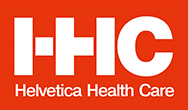Could Monoclonal Antibodies Decrease the Efficacy of COVID-19 Prevention?

In the study and treatment of infectious diseases like COVID-19 and HIV, understanding the role of antibodies is crucial. These specialised protein molecules, produced by the immune system, act as the body’s defence mechanism. They enhance its ability to fight bacterial and viral invaders by preventing them from attaching to and harming human cells. For example, in HIV, certain antibodies neutralise the virus before it can enter cells, while in COVID-19, antibodies can help tag infected cells for destruction by other immune cells.
Antibodies, shaped like a Y, are immunoglobulin molecules (Ig) produced by B lymphocytes or plasma cells. They play a crucial role in activating the primary response of the adaptive immune system upon detecting foreign molecules. These proteins bind antigen epitopes with high precision, contributing significantly to host immunity.
In research and medicine, antibodies are valuable for treating diseases and improving health. Labs are actively engaged in developing synthetic antibody therapies, mirroring the function of natural antibodies. These therapies aim to enhance the innate immune responses of the human body, offering potential cures and preventive treatments for various diseases.
Scientists have successfully developed two main types of antibody therapies: polyclonal and monoclonal.
Located in Geneva, Switzerland, HHC stands out as a global leader in providing an extensive selection of monoclonal and polyclonal antibodies targeting infectious agents. Specifically directed against human viral proteins, these antibodies exhibit a high level of specificity in immunoassays. HHC’s offerings contribute significantly to the field of antibody research, supporting precise and effective detection methods for infectious agents.
However, as we delve deeper into their role, questions arise about their impact on the overall effectiveness of COVID-19 prevention. Let’s navigate through these queries, shedding light on the nuances of Monoclonal Antibodies.
What are monoclonal antibodies?
Monoclonal antibodies are proteins made in a lab that mimic the antibodies your immune system naturally makes to fight off pathogens like viruses. They target a specific structure (antigen) on the virus, attaching to it and blocking the virus from infecting cells.
How Do Monoclonal Antibodies Work Against COVID-19?
Monoclonal Antibodies act as a defence mechanism by attaching themselves to the spike protein of the virus, preventing it from entering human cells. This interference hinders the virus’s ability to replicate and spread within the body, contributing to a milder course of illness.
Do Monoclonal Antibodies Interfere with COVID-19 Prevention Measures?
Some scientists hypothesise getting monoclonal antibodies too closely before/after vaccination could potentially interfere with the vaccine’s ability to generate a strong immune response.
The main concern is timing – if the antibodies bind first, they could prevent the immune system from recognizing and responding to the spike protein. This could dampen the overall response.
However, this risk seems to only apply if monoclonals are given shortly before/after vaccination. Current CDC guidelines recommend waiting 90 days between treatment and vaccination.
Should Monoclonal Antibodies be Used as a Standalone Preventive Measure?
Monoclonal antibodies are not intended to be standalone preventive measures against COVID-19. Their primary role is in the treatment of individuals who have contracted the virus. Preventive measures, including vaccination and adherence to public health guidelines, remain fundamental in controlling the pandemic.
Conclusion
Navigating the complex terrain of COVID-19 prevention reveals Monoclonal Antibodies as a potent asset. It’s vital to grasp their function, potential interactions with other preventive measures, and the importance of well-informed decision-making. Adopting a holistic strategy that integrates vaccines, Monoclonal Antibodies, and public health measures becomes pivotal in fortifying our defence against the persistent pandemic.
We at HHC believe that health can be improved with efficient medical research and high-quality lab tests and applications. Based in Geneva, Switzerland, HHC can provide you with a vast range of MONOBODIES™ that are highly specific in immunoassays and can be used in different applications, including ELISA, immunoblotting and immunochemistry and produce therapies that can fight against infectious agents.
We ensure swift and temperature-sensitive product delivery, optimising your lab testing efficiency. Contact us to discover how we can enhance your testing performance
